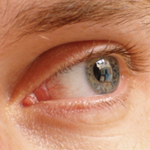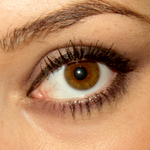Eye floaters are those small spots that literally float around in your field of vision and sometimes they are paired with flashes of light. Overall, eye floaters are not serious but in rare cases they can be the symptom of a more underlying health condition, so it is important to understand what they are and what can cause them in order to know when to seek medical advice.
 Eye floaters can come about as a result of tiny pieces of debris that make their way into the vitreous humour, which is the jelly like fluid that fills the cavity of the eye. Most people who experience floaters will describe them as dots or lines that appear in their vision, usually when they are focusing on something such as a book page or something that has a bright background. In the majority of cases eye floaters do not impair vision but in those cases where they actually block the line of vision, eye floaters can then become quite problematic.
Eye floaters can come about as a result of tiny pieces of debris that make their way into the vitreous humour, which is the jelly like fluid that fills the cavity of the eye. Most people who experience floaters will describe them as dots or lines that appear in their vision, usually when they are focusing on something such as a book page or something that has a bright background. In the majority of cases eye floaters do not impair vision but in those cases where they actually block the line of vision, eye floaters can then become quite problematic.
When you first notice eye floaters it is important to get medical advice, even if there is nothing serious, it is better to take preventative measures as anything serious can be caught early. If floaters appear with flashes then this could indicate the retina is being pulled and this if left untreated could even lead to something as drastic as blindness. Changes in size, quantity and intensity must be checked out in order to rule out the possibility of something much more serious.
